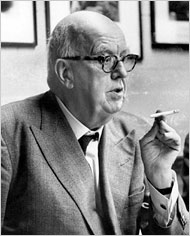
Charles Percy Snow, Baron Snow, was an English novelist and physical chemist who also served in several important positions in the British Civil Service and briefly in the UK government. He is best known for his series of novels known collectively as Strangers and Brothers, and for The Two Cultures, a 1959 lecture in which he laments the gulf between scientists and "literary intellectuals".
Strangers and Brothers is a series of novels by C. P. Snow, published between 1940 and 1970. They deal with – among other things – questions of political and personal integrity, and the mechanics of exercising power.

Kenzaburō Ōe was a Japanese writer and a major figure in contemporary Japanese literature. His novels, short stories and essays, strongly influenced by French and American literature and literary theory, deal with political, social and philosophical issues, including nuclear weapons, nuclear power, social non-conformism, and existentialism. Ōe was awarded the 1994 Nobel Prize in Literature for creating "an imagined world, where life and myth condense to form a disconcerting picture of the human predicament today".
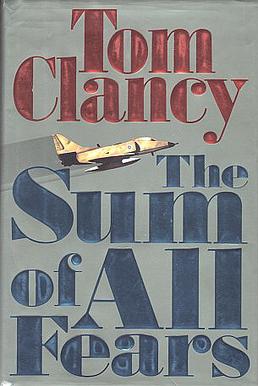
The Sum of All Fears is a political thriller novel, written by Tom Clancy and released on August 14, 1991, as the sequel to Clear and Present Danger (1989). Main character Jack Ryan, who is now the Deputy Director of Central Intelligence, tries to stop a crisis concerning the Middle East peace process wherein Palestinian and former East German terrorists conspire to bring the United States and Soviet Union into nuclear war. It debuted at number one on the New York Times bestseller list. A film adaptation, which is a reboot of the Jack Ryan film series and starring Ben Affleck as the younger iteration of the CIA analyst, was released on May 31, 2002.

The Light and the Dark is the fourth novel in C. P. Snow's Strangers and Brothers series. The book portrays narrator Lewis Eliot's friendship with Roy Calvert, and Calvert's inner turmoil and quest for meaning in life. Calvert was based on Snow's friend, Coptic scholar, Charles Allberry. Their relationship is developed further in The Masters.

George Passant is the first published of C. P. Snow's series of novels Strangers and Brothers, but the second according to the internal chronology. It was first published under the name Strangers and Brothers. It was published in the U.S. in 1960.
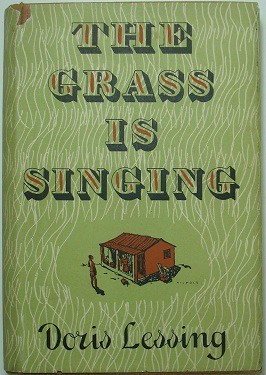
The Grass Is Singing, published in 1950, is the first novel by the British author Doris Lessing. It takes place in Southern Rhodesia, in southern Africa, during the 1940s and deals with the racial politics between whites and blacks in that country. It follows an emotionally immature woman's hasty marriage to an unsuccessful farmer, and her ensuing mental deterioration, her murder, and the colonial British society's reactions to it. The novel created a sensation when it was first published and became an instant success in Europe and the United States. A Swedish-made adaptation, Gräset Sjunger, was filmed in English in 1981.

Time of Hope is the first chronological entry in C. P. Snow's series of novels Strangers and Brothers, and the third to be published. It depicts the beginning of Lewis Eliot's life, with a childhood in poverty in a small English town at the beginning of the 20th century.
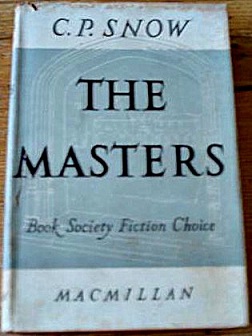
The Masters is the fifth novel in C. P. Snow's series Strangers and Brothers. It involves the election of a new Master at narrator Lewis Eliot's unnamed Cambridge College, which resembles Christ's College where Snow was a fellow. The 1951 novel's dedication is "In memory of G. H. Hardy", the Cambridge mathematician. It was the first of the Strangers and Brothers series to be published in the United States.

The Conscience of the Rich is the seventh published of C. P. Snow's series of novels Strangers and Brothers, but the third according to the internal chronology. It details the lives of Charles, Katherine and their father, Leonard March, a wealthy Jewish family. Lewis Eliot narrates the story of the conflicting politics of wealth and pre-World War II socialism in England.
The Rithmatist series is a young adult fantasy series written by American author Brandon Sanderson. At least two books are planned in the series: The Rithmatist (2013) and a second volume, titled The Atzlanian, is planned.

The Fifth Risk is a 2018 non-fiction book by Michael Lewis that examines the transition and political appointments of the Donald Trump presidency, especially with respect to three government agencies: the Department of Energy, the Department of Agriculture, and the Department of Commerce. The book spent fourteen weeks on The New York Times non-fiction best-seller list. A lengthy excerpt from the book was published twice by The Guardian, using a quote from a top adviser to Trump in the title.

Last Things is the eleventh and final installment of C. P. Snow's series of novels Strangers and Brothers.

The Affair is the eighth book in C. P. Snow's Strangers and Brothers series. The events return to the Cambridge college of The Masters. It is once again narrated by Lewis Eliot.

The Sleep of Reason is the tenth book in C. P. Snow's Strangers and Brothers series.
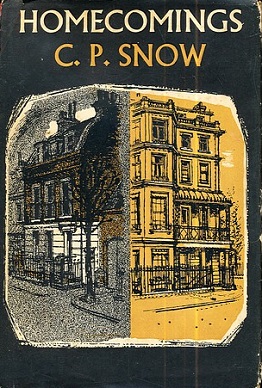
Homecomings is the seventh book in C. P. Snow's Strangers and Brothers series. The events concern the personal life of narrator Lewis Eliot.

The New Men is the sixth novel in C. P. Snow's series Strangers and Brothers.
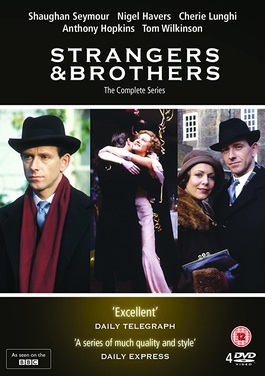
Strangers and Brothers is a 1984 British television series produced by the BBC. Adapted from the novel series of the same name by C. P. Snow, it ran for a single series of thirteen episodes.

Venetian Blind is a 1959 suspense novel by the British author William Haggard published in England by Cassell and in the United States by Ives Washburn. It was Haggard's second of 21 books involving his urbane protagonist Colonel Charles Russell, the head of the unobtrusive but lethal Security Executive, a government counter-intelligence agency clearly based on the actual MI5 or Security Service, where he moves easily and gracefully along C.P. Snow's Corridors of Power in Whitehall. Like all of Haggard's books it has standard elements of suspense thrillers but in addition there is an almost Henry Jamiesian exposition of British establishment mores and character, in both the government and in the world of upper-class financiers, scientists, industrialists, their families, and hangers-on, making it very much a novel of character.

The Antagonists is a 1964 suspense novel by the British author William Haggard published in England by Cassell and in the United States by Ives Washburn. It was Haggard's sixth of 21 books involving his protagonist Colonel Charles Russell, the urbane head of the unobtrusive but lethal Security Executive, a government counter-intelligence agency clearly based on the actual MI5 or Security Service, where he moves easily and gracefully along C.P. Snow's Corridors of Power in Whitehall. Like Haggard's earlier books it has standard elements of suspense thrillers along with detailed examinations of character, but in this case with more scenes of direct action and somewhat less dissection of character and motivation than in the first three books.


















